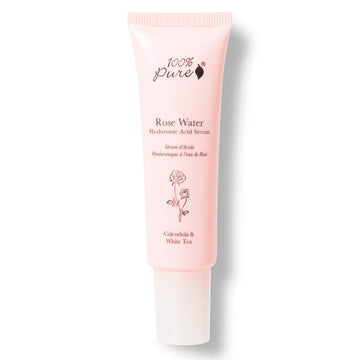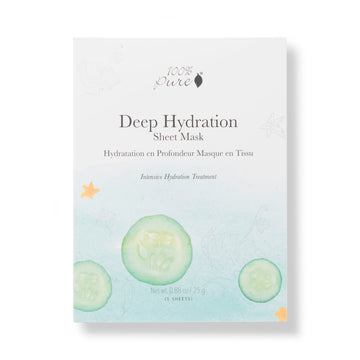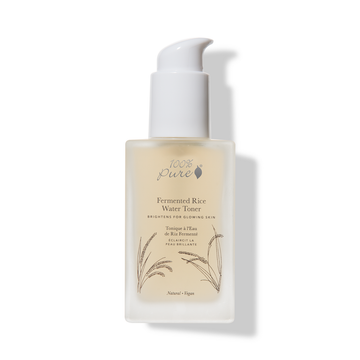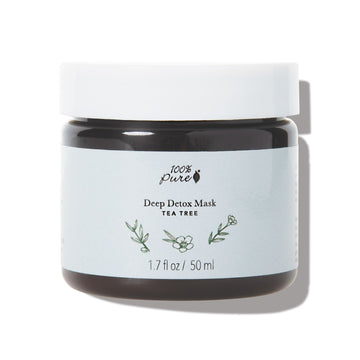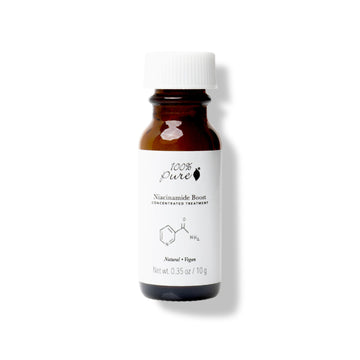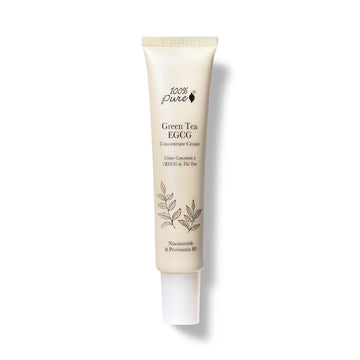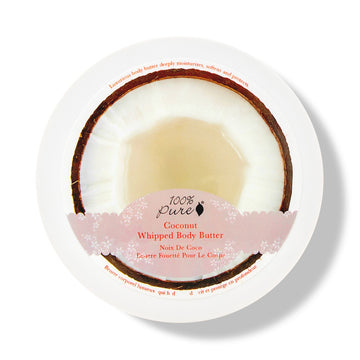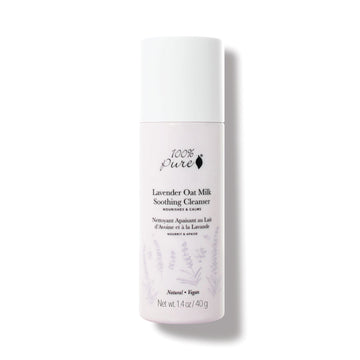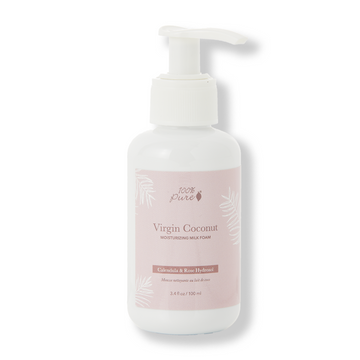Navigate the complex world of skincare ingredients and make informed decisions for your skin
Written by: 100% PURE®
Every day, we are bombarded with the promise of radiant skin, age reversal, and a magical cure for our skin woes. But have you ever stopped to scrutinize what's behind the glossy packaging of your skincare products? The secret lies not in the beautifully designed bottles or the brand name, but in the small, often overlooked, section of the packaging: the ingredient label.
Just as you'd review the ingredient list of your food, understanding what goes into your skincare products is crucial for nurturing healthy, glowing skin. However, reading a skincare product label can often feel like deciphering a complex code, filled with scientific jargon and perplexing terms. But fear not! We're here to help you crack this code.
Our comprehensive guide will navigate you through this labyrinth of ingredients. You'll learn how to read and understand labels, what to look out for, how to decode ingredient names, and how to identify potential irritants. We will also offer you suggestions on how to find products that contain beneficial ingredients for your specific skin type.
Navigating the world of skincare labels can be overwhelming. Just like reading a foreign language, it requires understanding certain critical elements to decode the message accurately. Here are some of the key things to look for when you're scrutinizing a skin care product label.
The Order of Ingredients
In skincare products, the order of ingredients listed on the label matters a lot. The list starts with the ingredient that has the highest concentration, going down to the least. So, if you're eyeing a moisturizer that touts hyaluronic acid as a key component but finds it languishing at the end of the list, it means that the product contains a lesser amount of it than the other ingredients. By understanding this, you can ensure you're truly getting what you're paying for.
Expiry Dates and Batch Numbers
Understanding expiry dates and batch numbers are crucial for ensuring the product's efficacy and safety. The expiry date indicates how long the product will remain effective after opening. Using a product beyond its expiration can lead to skin irritations or infections due to the growth of bacteria.
Batch numbers, though less understood, are equally essential. They are codes that identify when and where a product was manufactured. If there's a recall or an issue with a specific lot, the batch number will help identify the products involved. So, keeping a note of this number, especially for your staple skincare items, is a wise practice.
Understanding Specific Labels
Certain labels on skincare products can be confusing and misleading. For instance, terms like "organic", "natural", and "dermatologist-tested" are often thrown around, but what do they mean?
An "organic" label implies that the ingredients are organically farmed, meaning they're free from synthetic fertilizers, pesticides, and genetically modified organisms (GMOs). However, not all "organic" claims are created equal. Look for certification symbols such as USDA Organic to ensure the credibility of these claims.
"Natural" is a tricky term because it's not strictly regulated. It generally suggests that the product is free of synthetic substances, but it might still contain ingredients you want to avoid. Always double-check the ingredients list even if a product is labeled as "natural".
Finally, "dermatologist-tested" indicates that the product has been reviewed by a dermatologist for its safety and efficacy. While this might seem reassuring, it doesn't necessarily mean that the product is suitable for all skin types, as individual skin reactions can vary. Therefore, it's essential to patch-test any new product before full application.
By learning to understand these important elements on a skincare product label, you can make informed decisions about what you're putting on your skin. After all, knowledge is power, especially when it comes to decoding beauty.

Unfolding the intricacies of skincare product labels can feel like trying to translate an ancient, forgotten language. A glance at the ingredient list can leave you feeling baffled by terms like hyaluronic acid, niacinamide, retinol, or tocopherol. But fear not, let's decipher these terms and illuminate their benefits for your skin.
Hyaluronic Acid
Don't be alarmed by the term 'acid.' Hyaluronic acid is not corrosive or irritating. Instead, it's a naturally occurring substance in our bodies, crucial for retaining moisture in the skin. When you see it listed on your product label, know that it's there to keep your skin hydrated, plump, and youthful. It can hold up to 1,000 times its weight in water, acting as a moisture magnet for your skin.
Niacinamide
Another complex-sounding term, niacinamide, is simply a form of Vitamin B3. This multifaceted ingredient boasts a wealth of benefits for your skin. It aids in reducing redness and inflammation, regulates oil production, minimizes pore appearance, and strengthens the skin barrier. When you see niacinamide on a product label, you're looking at an ally for nearly all skin types and conditions.
Retinol
Retinol is essentially a derivative of Vitamin A, one of the most potent ingredients for skin transformation. It's the powerhouse behind anti-aging skincare, well-celebrated for its ability to accelerate skin renewal and reduce the appearance of wrinkles, fine lines, and age spots for a smoother, healthier complexion. Just remember, with retinol, patience is key as the effects build over time.
Now, let's take a look at the scientific names of some common natural ingredients:
Tocopherol
Behind the complex name of Tocopherol lies a simple substance - vitamin E. It's a powerful antioxidant that helps protect the skin from the damaging effects of the sun and environmental pollution. Furthermore, it has moisturizing and healing benefits, aiding in strengthening skin barrier function.
Ascorbic Acid
Another confusing term, ascorbic acid, is simply the scientific name for vitamin C. It's a potent antioxidant that neutralizes free radicals in the skin, helping to prevent oxidative stress and skin aging. Plus, it's renowned for its ability to brighten the skin, improve hydration, and stimulate collagen production.
By demystifying these terms, we can make more informed decisions about our skincare routine. Remember, the real beauty of a product lies not in its packaging, but in its ingredients and their benefits to our skin.
Navigating the world of skincare can often feel like trying to master a new language. While each product promises you radiant, clear skin, it's essential to understand that not all ingredients in these potions work wonders for everyone. Some may even cause skin irritation or allergies.
Let's delve into some of these ingredients that are commonly known to cause reactions:
Fragrances
Fragrances are added to skincare products to make them more appealing, but they're often a common culprit behind skin reactions. They can cause a range of skin problems, from simple irritation to more serious allergic reactions.
Certain Alcohols
While not all alcohols are harmful, some, like isopropyl alcohol, denatured alcohol, and alcohol denat (denatured alcohol), can be particularly drying and irritating for those with sensitive skin.
Sulfates
Sulfates, including Sodium Lauryl Sulfate (SLS) and Sodium Laureth Sulfate (SLES), are used in many skincare and beauty products for their foaming properties. However, they are known to strip the skin of its natural oils, leading to dryness, redness, and irritation.
While these ingredients are in products for specific reasons, such as enhancing appeal, providing a cooling effect, or aiding in product absorption, they can cause reactions because everyone's skin is unique. What works beautifully for one person can cause redness, itching, or breakouts in another.
If you find your skin reacting poorly to a product, first, stop using it immediately. Everyone's skin is different, and what might irritate your skin may not affect another person at all. It's crucial to identify what specific ingredient could be causing the issue. Carefully analyze the product's ingredient list and cross-reference it with other products that might have caused similar reactions.
Remember, understanding your skincare products goes beyond the attractive packaging or the promises they make. Knowledge of potential irritants is crucial in decoding beauty and achieving that desired healthy glow.
Newsletter Subscribe
for more blog updates and exclusive discounts
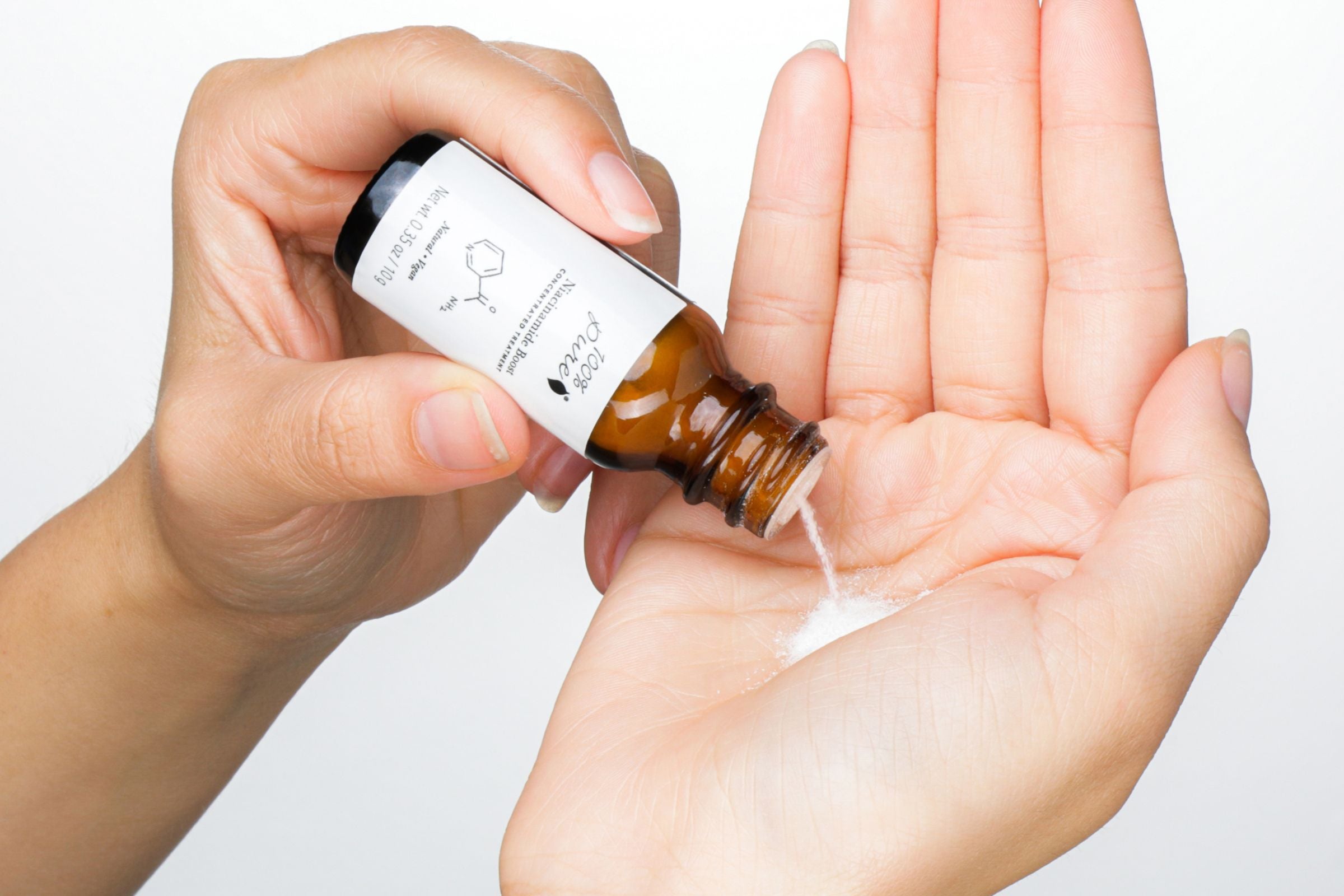
Understanding the specific ingredients in your skincare products is crucial to achieving radiant, healthy skin. The efficacy of a product is strongly tied to its active ingredients and their compatibility with your skin type. Let's break down the ingredients typically beneficial for different skin types and why they work well.
Dry Skin
People with dry skin often experience a lack of natural oil production, leading to flaky, itchy, or dull-looking skin. Key ingredients to look out for include:
Hyaluronic Acid
This powerful humectant attracts moisture and helps your skin retain it. It can hold up to 1,000 times its weight in water, providing deep and lasting hydration.
If you’re looking for a truly hydrating hyaluronic acid serum, look no further than our Rose Hyaluronic Acid Serum. The lightweight gel texture instantly quenches dry skin, while chamomile and calendula extract calm and soothe for a peaceful glow. To further nourish your skin, incorporate this serum into your skincare routine after cleansing with our Calendula face wash. Say goodbye to redness and hello to a toned, moisturized look that will have you feeling confident and beautiful.
Ceramides
These are lipids that form a protective layer to prevent moisture loss and keep your skin supple and moisturized. If you’re looking for a serious ceramide soother, get ready to quench your skin's thirst with our Deep Hydration Sheet Mask! Packed with aloe juice and a nourishing blend of cucumber, hyaluronic acid, and plant ceramides, this mask is designed to replenish dry skin.
Glycerin
Glycerin is a humectant that attracts water to your skin, helping to combat dryness effectively to moisturize dry skin. Our Fermented Rice Water Toner uses vegetable glycerin along with hyaluronic acid and sodium PCA to ensure your skin stays hydrated and plumped.
Oily Skin
Those with oily skin produce excess sebum, resulting in shiny skin and clogged pores. Beneficial ingredients include:
Salicylic Acid
This beta-hydroxy acid penetrates the pores and helps to reduce oiliness and prevent acne by exfoliating the skin and reducing inflammation. Our Tea Tree Deep Detox Mask combines salicylic acid and French green clay to balance excess oil and cleanse your skin of pore-clogging debris and pollutants. To top it off, peppermint and eucalyptus oils provide a soothing touch, reducing redness and inflammation for a calm and refreshed complexion. Try our mask and discover the ultimate purification for your skin.
Niacinamide
Also known as vitamin B3, niacinamide regulates sebum production and reduces the appearance of pores. For a super-concentrated punch of niacinamide, try our water-activated Niacinamide Boost! This vegan and cruelty-free formula is infused with vitamin B3 and hyaluronic acid to restore youthful texture and tone. Say goodbye to large pores and excess oil, and hello to hydrated, glowing skin.
Green Tea Extract
It has anti-inflammatory properties that can soothe the skin and help manage oil production. For those looking for green tea’s most concentrated benefits, we recommend our Green Tea EGCG Concentrate Cream. Packed with key phytonutrients, this soothing formula works wonders for your skin. Our secret weapon? EGCG, a potent antioxidant from green tea fights off environmental damage and tackles aging free radicals. Say hello to softer, fortified skin. Our daily moisturizing cream combines the finest ingredients, including nourishing yerba mate water, rich açai butter, and lightweight green tea oil.
Sensitive Skin
Sensitive skin is easily irritated and requires gentle, soothing ingredients:
Aloe Vera
Known for its soothing and healing properties, aloe vera is ideal for calming irritated skin and reducing inflammation. Our Coconut Whipped Body Butter combines aloe vera and rose hydrosol to deeply hydrate even the driest skin. With rich cocoa butter, avocado butter, and blackcurrant oil, it strengthens your skin's natural defenses against dryness and itchiness. And just wait until you experience the heavenly scent of sweet, tropical coconut. Give your skin the care it deserves with our decadent body butter.
Colloidal Oatmeal
This ingredient has anti-inflammatory properties and is extremely gentle, making it perfect for sensitive skin. If you’re looking for a truly gentle physical exfoliant, look no further than our Lavender Oat Milk Soothing Cleanser. Say goodbye to makeup, sunscreen, and dirt with this moisturizing powder cleanser. Formulated with nourishing ingredients like colloidal oatmeal, rose petals, lavender, coconut milk, echinacea, and botanicals, it leaves your skin feeling soft and renewed. Let your skin indulge in the soothing power of nature's best.
Chamomile Extract
Chamomile is known for its soothing and anti-inflammatory properties, helping to calm sensitive skin. You can find soothing chamomile in our Virgin Coconut Moisturizing Milk Foam, which effortlessly washes away makeup, sunblock, and impurities while leaving your complexion radiant. Our secret ingredient? Coconuts! Packed with purifying lauric acid, they detox your pores and prevent pesky blackheads and whiteheads.
Understanding the ingredients in your skincare products can make a substantial difference in your skincare journey. By choosing products with ingredients that complement your skin type, you'll maximize the benefits and move closer to your skincare goals.
What does "hypoallergenic" really mean?
The term "hypoallergenic" is frequently seen on skincare labels, but its meaning is often misunderstood. "Hypoallergenic" literally means below (hypo) normal (allergenic). In the context of skincare, it suggests that the product is less likely to cause allergic reactions compared to others. However, it's essential to understand that it doesn't guarantee the product will not cause an allergic reaction at all. Reactions can vary from person to person, depending on skin type, sensitivities, and the specific allergens that an individual may react to.
Are expensive products always better because of their ingredients?
While it's tempting to equate price with quality, this isn't always the case in skincare. A high price tag often reflects factors like brand prestige, packaging, marketing, and yes, sometimes superior ingredients or formulation technology. However, this doesn't automatically mean the product will be more effective or suitable for your skin. Some inexpensive products are just as, if not more, effective as their pricier counterparts. It all comes down to the specific ingredients, their concentrations, and how they interact with your unique skin type and concerns. Always focus on the ingredients list rather than the price tag when choosing your skincare products.
How can I perform a patch test to check if I’m allergic to any ingredients in a new product?
Performing a patch test is a crucial step before incorporating any new skincare product into your routine. It can help you determine whether your skin will react negatively to it. Here's a simple guide on how to do it:
- Select a small, discreet patch of skin. The inner forearm or behind the ear are commonly used spots.
- Apply a small amount of the product on the selected area and let it dry.
- Do not wash that area for at least 24 hours, barring any immediate adverse reactions.
- Monitor the patch for any signs of redness, itching, burning, or swelling.
If any of these signs appear, wash off the product immediately with water. It may indicate that you have a sensitivity or allergy to one or more ingredients in the product. If no reaction occurs, it's generally safe to incorporate the product into your skincare routine. However, remember that a patch test is not foolproof, and some reactions might occur with prolonged use, so always pay attention to any changes in your skin.
We carefully hand-select products based on strict purity standards, and only recommend products we feel meet this criteria. 100% PURE™ may earn a small commission for products purchased through affiliate links.
The information in this article is for educational use, and not intended to substitute professional medical advice, diagnosis, or treatment and should not be used as such.


